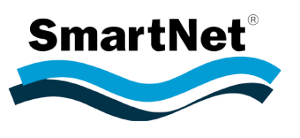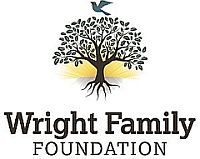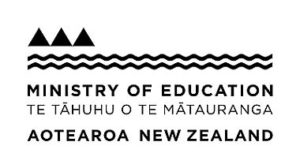PROGRAMME
| Day 1 – Wednesday 08 August: Valuing Educators Mobilising Knowledge -Applying Research -Working Together |
||
| 8.15am | Registration, networking and coffee | |
| 8.40am | Starter | |
| 8.55am | Mihi whakatau/Opening | |
| 9.00am | Opening Dialogue:
Working Together: Aligning the intersections between education policy, practice and evidence to develop great teaching that makes a difference for student achievement. Models for knowledge mobilisation which demonstrate the ways in which knowledge, expertise and capacity move around within and between education organisations. The impact of networks and collaboration and effective approaches to leadership and professional development in developing great teaching that makes a difference for student achievement. |
Prof. Toby Greany Professor of Leadership and Innovation at the Institute of Education, University College, London and former Director of the London Centre for Leadership of Learning. In conversation with |
| 10.00am | The Future of Adaptive Learning -Building Learning Capacity Now Mark addresses the multiplicity of changes that educators face and the adaptive pathways needed to create the learning environments required by learners to prepare them for the world in which they will live, work and play. He outlines a learning framework that provides educators with a developmental schema for how learning takes place and lays a foundation of competencies for learners to have greater agency over their learning and become independent lifelong learners. |
Mark Treadwell Education Consultant, Mark Treadwell Consultancy |
| 10.45am | Networking Break | |
| 11.15am | Panel/Forum: Working Together for Children –Collaboration between agencies involved with children and young people “…the easiest bit is describing what the problems are – the hardest bit is trying to find innovative system responses as well as individual responses for each child and family.” Jackie Talbot, General Manager, Secondary-Tertiary, Ministry of Education With the establishment last year of the recently renamed Ministry for Children, Oranga Tamariki what is now starting to happen that looks like it is making a positive difference to the welfare, learning and life course progress of young people? |
Jackie Talbot Group Manger, Secondary-Tertiary, Ministry of Education Shaun Brown
|
| 12.00 Noon |
Focusing on Abilities –Opening minds, developing skills and shifting up a gear As Disability Rights Commissioner one of Paula Tesoriero’s top priorities in the role is improving educational outcomes for disabled students. With 42% of disabled young people not in employment, education, or training, it is clear the New Zealand education system is not as inclusive of disabled students as it needs to be. For Paula making the education system more inclusive is key to improving employment and overall life outcomes for disabled people. However, to really shift outcomes Paula is resolute that attitudes towards disabled people must also change. In schools for example, disabled children are bullied at higher rates – this is an indication that we have a long way to go to ensure disabled children feel they are valued members of their classrooms, schools, and wider communities. |
Paula Tesoriero Disability Rights Commissioner, Human Rights Commission |
| 12.30pm | Networking Lunch Break | |
| 1.30pm | Leading Teacher Learning – Adding credibility and value to teaching and learning and optimising developmental pathways for New Zealand learners via a strong evidential base “… effective school leaders do not just work on vision, acquire resources and manage the school; in addition they mobilize the group to get results…” Prof . Michael Fullan Updated foreword to BES School Leadership and Student Outcome Three speakers respond: |
|
| 1.30pm | I. Professional Change Leadership -Learning Logs: What works and why? In this session Xanthe will outline the emerging practice of learning logs in an e-learning context and how this simple pedagogical approach shifted practice and outcomes for students and helped remove the assessment logjam for teachers. She will take you through the practice of change leadership through her exemplar of e-practice, based on her work with the Ministry of Education’s Best Evidence Synthesis on e-based Learning Logs and raising student achievement. This work has become part of assessment practice in New Zealand secondary schools with the ongoing growth of classroom e-practice. |
Xanthe Sulzberger Principal, McAuley High School, Auckland |
| 2.05pm | II. “Bobbie Maths”: Raising mathematics achievement -The power of collaboration and culturally responsive teaching Students in South Auckland, Christchurch and elsewhere are benefitting from the mathematical inquiry communities developed by Associate Professor Roberta Hunter and her Massey University team. The teaching approach is culturally responsive and supports students to work together to solve maths problems, accelerating achievement for the students involved. Developed initially as part of Prof. Hunter’s PhD, the approach was presented in BES Exemplar 1: Developing Communities of Mathematical Inquiry as a signature pedagogy to further support accelerated improvement for students. |
Ass. Prof. Roberta (Bobbie) Hunter Institute of Education, Massey University-Albany |
| 2.40pm | III. Moving beyond the Rhetoric -Promoting a Pedagogy for Belonging “Ka Hikitia – Accelerating Success is ‘our strategy to rapidly change how the education system performs so that all Māori students gain the skills, qualifications and knowledge they need to enjoy and achieve education success as Māori’ ” (Ministry of Education, 2015). For many students, belonging is not realised as education continues to underserve specific groups of clearly identifiable students. This presentation will explore what a nationwide sample of senior Māori students said is required if schools are to achieve this vision of belonging. This has important implications for all educators in New Zealand and other marginalised groups. |
Professor Mere Berryman Faculty of Education, University of Waikato |
| 3.15pm | Networking Break | |
| 3.45pm | Concurrent Sessions | |
| Concurrent Session 1 |
A Systematic Approach to Leading Learning -How effective education leaders operate within individual learning systems, both as a result of deliberate and unintended policy-driven incentives and as a result of personal agency Introduction: New Zealand’s international reputation in effective professional development for teachers “Out of 947 source reviews the New Zealand Iterative Best Evidence Synthesis Programme’s Teacher Professional Learning and Development BES was found to be the most consistent and rigorous.” UK comprehensive review Case Studies: Innovative Educational Practice Solution focused exemplars of the successful implementation of educational research which makes a difference to life course outcomes and some failure stories from which to learn. |
Prof. Toby Greany Professor of Leadership and Innovation at the UCL Institute of Education, University College London and former Director of the London Centre for Leadership of Learning |
| Concurrent Session 2 |
Refashioning your school’s curriculum with resources from the Global Curriculum Project
Mark has developed a series of resources, in consultation with numerous schools in New Zealand, Australia and Dubai, that are underpinned by the neuroscience, sociology and psychology of how the brain learns The resulting three resources collectively contribute to the Global Curriculum Project. In this workshop /demonstration Mark reviews the first two of these and previews the third. 1. The Future of Learning: This multimedia resource is a ‘living resource’ and as such the online edition will be updated every four months. The resource is divided into three sections A. The emerging model for how our brain learns B. The Learning Process C. The six pillars that underpin an effective 21stC curriculum 2. The Global Competencies: The competencies are shifting from obscurity to the centre of the curriculum as they are now the essential capability builders across all aspects of our lives in this century. Schools are now seeing these are central to curriculum and this resource unpacks the six competencies in a manner that allows educators to apply them in the way they deem to be most appropriate. NB The OECD has recently announced that the ‘Global Competencies’ will become part of the PISA assessment process in 2018 – see here 3. The Seven Learning Domains: The traditional ‘subject areas’ are no longer context based (thematic topics) but rather they are conceptually based to build the necessary conceptual frameworks that underpin our capacity to be innovative and ingenious – the call of the 21st century. Collectively these three resources contribute to the development of each school’s unique curriculum offering. The Global Curriculum Project should not be seen as ‘the curriculum’ but rather as a series of resources that allow educators to refashion their curriculum in a way that is unique to them and meets their needs more precisely. |
Mark Treadwell Education Consultant, Mark Treadwell Consultancy |
| 5.15pm |
Networking Drinks and Nibbles | |
| 6.30pm | Free evening – make up a group and explore Rotorua’s restaurants | |
| Day 2 – Thursday 09 August: Revaluing Education Embracing Disruption-Inspiring Creativity-Fostering Innovation |
||
| 8.15am | Registration, networking and coffee | |
| 8.45am | Starter |
|
| 8.55am | Review/Preview | |
| 9.00am | Presentation: Micro-credentials: an old dog with some new tricks! Micro-credentials, which recognise smaller yet discrete sets of skills and knowledge are enjoying a resurgence worldwide, in response to increasingly expensive traditional qualifications and to employer demand for training that meets specific skill needs, especially those arising from rapid technological and societal changes. More… |
Phil Ker Chief Executive, Otago Polytechnic |
| 9.45am | Presentation Growing NZ’s future inventors by creating the Tech Future now In the near future, everyone will either be a consumer of tech or a creator of it. Children’s charity OMGTech! is about giving kids the opportunity to be the creators. OMGTech! develops and delivers engaging workshops for both teachers and students on digital technologies and how to explore and invent with them. |
Vaughan Rowsell Founder of point of innovative sale company Vend and children’s charity OMGTech! |
| 10.30am | Networking Break | |
| 11.00am | Concurrent Sessions I. Turning the Tables Some young student participants in OMGTech! School-based workshops help Vaughan Rowsell facilitate an eye opening workshop for ELF18 registrants. |
Vaughan Rowsell Founder of point of innovative sale company Vend and children’s charity OMGTech! |
| II. The Learner Capability Framework -Tools and teaching platforms that enable learners in a secondary tertiary learning environment to gather evidence of individual capability, have that evidence assessed and verified, and then presented in an individual capability profile. More |
Andy Kilsby Manager Secondary Tertiary, Otago Polytechnic |
|
| 12.00pm |
Presentation Career Portfolios/Transitions/Pivots – The New NormCareer development is a life-long pursuit. How can we support our young people to make successful decisions about their careers in the fast-paced and ever-changing world we now live in? Condensing current global thinking into a local perspective, Heather will discuss some of the realities and practical ideas to guide young people into an unpredictable future. |
Heather Lowery-Kappes CDANZ, National Executive Member |
| 12.30pm | Networking Lunch Break | |
| 1.30pm | Presentation, Commentary and open forum Understanding complex human behavioural research in relation to study and work choices –Innovation, entrepreneurship and post-tertiary integration of students into the workforce Informing study and work choices for secondary and tertiary students by understanding complex human behavioural research in relation to the development of entrepreneurs, new technologies, innovative organisations, growth industries and productive regional economies. |
Dr Amanda Lynn, PhD, Managing Director, Mandolin Associates |
| 2.45pm | Priorities, Challenges and Solutions –Bringing about system change and enhanced care and learning through collaboration between educators, social workers and other agencies involved with children and young people. |
Hon.Tracey Martin, Minister for Children |
| 3.30pm | Drawing the threads together | |
| 3.45pm | Forum Concludes | |





